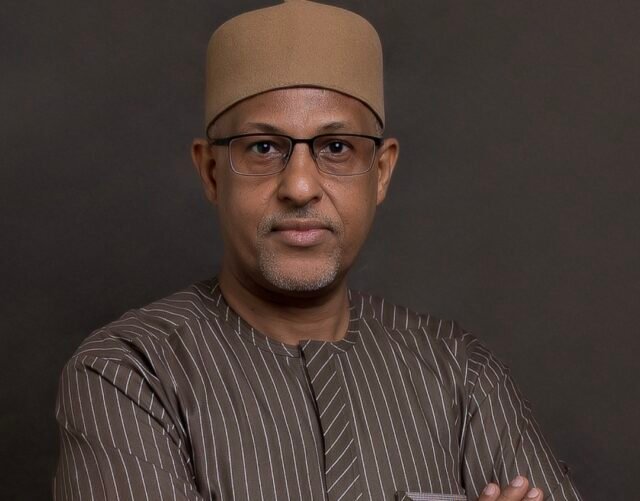Nigeria’s Internet Rising AfPIF Moment began in April 2025, when the Internet Exchange Point of Nigeria (IXPN) hit a record 1 terabit per second in local traffic—a technical feat and symbolic turning point. Just fifteen years ago, less than one percent of traffic stayed local. Today, a growing share remains at home, proving that “keeping internet local” is no longer a dream but a reality in motion.
And then came the bigger stage: Lagos hosting the African Peering and Interconnection Forum (AfPIF) in August 2025. This isn’t just about raw data; it’s a defining moment to ask—can Nigeria finally keep its internet at home?
Table of Contents

Rising AfPIF Moment: Why Localisation Matters for Nigeria’s Digital Future
Often, Nigerians experience frustrating lags when streaming videos, attending virtual classes, or performing online banking. That’s because nearly 70 percent of Africa’s internet traffic still travels abroad—bouncing through London or the Middle East—before returning home. This detour slows everything down, hikes up costs, and even exposes our data to unwanted jurisdictional risks.
Muhammed Rudman, CEO of IXPN, vividly recalls, “Fifteen years ago, about one percent of internet traffic was localised.” Today, IXPN stands among Africa’s top three Internet Exchange Points—a major leap that speaks to more than speed. Localising traffic delivers sovereignty, builds resilience, and opens doors for industries like streaming, gaming, telemedicine, fintech, and e-governance—all needing fast and reliable digital environments to thrive.
It is precisely this transformation that defines Nigeria’s Rising AfPIF Moment: an acknowledgement that localisation is no longer an abstract ambition but the very lifeline of our digital economy.
Nigeria as a Continental Testbed: Building an African Digital Hub
When you compare IXPN’s achievement to global giants, the range is staggering: Germany’s DE-CIX—after decades of steady growth—reached 25 Tbps. South Africa’s NAPAfrica currently exceeds 5 Tbps. Nigeria, on track to double from 1 Tbps to 2 Tbps by end of 2025, is sprinting to catch up. This is a bold ambition, not by chance: IXPN plans to expand colocation in Lagos, Abuja, Port Harcourt, and Kano; deepen partnerships with content delivery networks and cloud providers; and encourage enterprise and government traffic to stay local. Add to that plans for regional peering—linking Nigeria with Ghana, Côte d’Ivoire, Senegal—and you see a broader strategy: to make Nigeria not just a waypoint, but a key continental hub anchoring African internet infrastructure.
This is where the Rising AfPIF Moment finds global context. It’s not only about Nigerian pride—it’s about proving that Africa can engineer its own digital backbone, one exchange point at a time.

The AfPIF Advantage: Turning Momentum to Mastery
AfPIF 2025, hosted at the Lagos Continental Hotel from August 19 to 21, is far more than a conference—it’s a pivotal moment in real time. This gathering will bring over 500 industry leaders, including network operators, IXP managers, data-centre executives, CDN and cloud representatives, submarine cable operators, regulators, researchers, community networks, academia, hardware vendors and media.
Hosted locally by IXPN, Rack Centre, and AF-CIX, and organised by the African IXP Association alongside the Internet Society, this forum focuses on West Africa’s policy environment, neutral data-centre markets, and content delivery ecosystems. Through workshops, keynotes, panels, lightning talks, and networking sessions, it seeks to align stakeholders around one vital goal: keeping Africa’s internet traffic in Africa.
As Kyle Spencer, Executive Director of AFIX, notes, AfPIF has, over 15 years, “spurred investment in data centres, content hosting, and cross-border infrastructure—reducing costs, boosting performance and broadening access while strengthening Africa’s economic independence and digital sovereignty.”
On his part, IXPN’s CEO, Muhammed Rudman, put it simply: hosting AfPIF means building a collaborative ecosystem where regulators, cloud platforms, data-centre developers, and policy-makers unite to forge a digitally sovereign future for Nigeria—and for Africa at large. To many, this gathering is the crystallisation of our Rising AfPIF Moment.

Conclusion
Nigeria’s Rising AfPIF Moment is here—and it’s real. For decades, our internet stretched through distant hubs, slowed by latency, and burdened by inefficiency. Today, with IXPN’s 1 Tbps milestone, we’re telling a new story—one where our digital traffic remains within our borders, empowering industries and citizens alike. Hosting AfPIF 2025 amplifies that message, showing that Nigeria is ready to lead—not just in West Africa, but across the continent.
The path ahead demands continued investment: more data-centre capacity, deeper cross-border networks, local tech training, and regulatory frameworks that support digital localisation. Achieving these ensures that our digital heartbeat thumps stronger, surer, and closer to home. Nigeria’s future isn’t just glimmering—it’s being built, bit by bit, at home.
Join Our Social Media Channels:
WhatsApp: NaijaEyes
Facebook: NaijaEyes
Twitter: NaijaEyes
Instagram: NaijaEyes
TikTok: NaijaEyes







































